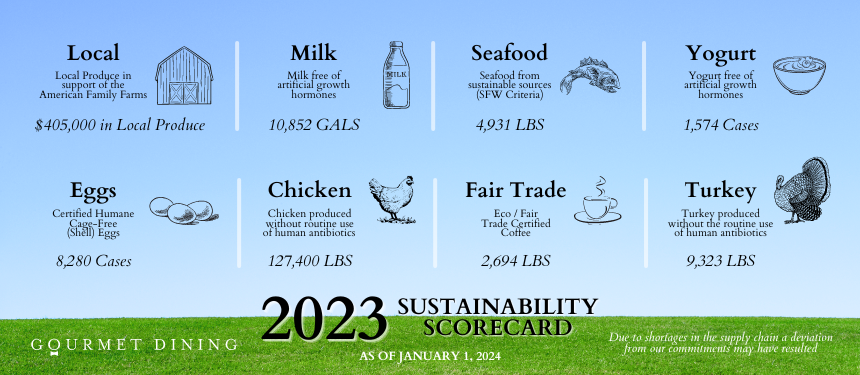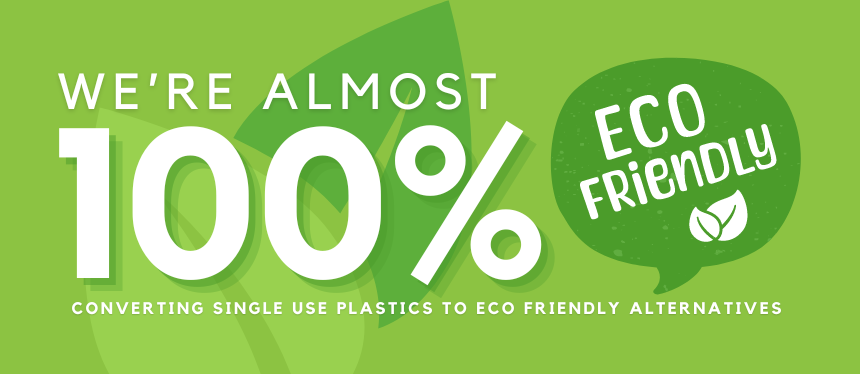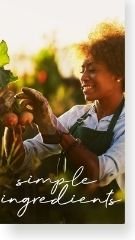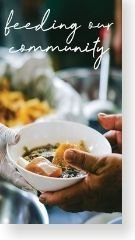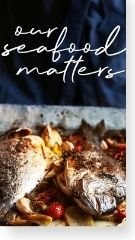Sustainability
Sustainability
Our Mission
For more than a decade Gourmet Dining, a division of Compass Group, has strived to make positive change within the realm of sustainability by supporting local economies, sourcing sustainable seafood, implementing measures to address climate change issues and much more. Our sustainability story has established Gourmet as an important contributor towards a more sustainable future and as a model for what is possible within the realm of the food service industry.
We are proud of our past contributions and are committed to continue building on them. We establish specific milestones. We seek to create change where we can have the greatest impact. We pledge to the utmost public transparency, allowing us to manage our progress and adjust our path as needed. Our Vision is our long term aspiration that is anchored in a roadmap to realization.
We are stepping up to challenges of the future and we are not looking back.
Our Commitment
Simple Ingredients
RBGH Free Milk & Yogurt
The artificial growth hormone rBGH (also known as rBST) is a genetically engineered artificial hormone that is injected into dairy cows to increase milk production. Science and experience has clearly demonstrated that the use of artificial bovine growth hormones in dairy cows is detrimental to the well-being of the animal. The medical community has expressed apprehension that the use of these hormones may also be harmful to human health.
All of our contracted milk and yogurt are from cows that have been certified to be free of the artificial growth hormones rBGH/rBST.
Feeding Our Community
Feeding Our Community by Repurposing "Waste"
“We’re in the business of feeding others and we absolutely believe in the power of food to bring people and communities together.” George Kuzma, vice president of business development.
Keeping food waste out of landfills is a critical part of Gourmet Dining’s commitment to sustainable food
service. One way to divert food waste from landfills is through the donation of food that is safe to eat but can no longer be served in a café; a process otherwise known as food recovery.
About 40% of the available food supply in the United States is thrown away each year. Furthermore, Feeding America has determined that restaurants and convenience stores alone throw away approximately 20 billion pounds of edible food each year.
At the same time, one in every six Americans lacks a secure supply of food, which is more than 50 million people, the majority of whom are children and senior citizens. Feeding America estimates that if we could recover of the food thrown away by food service providers each year, we could theoretically eliminate hunger in the United States!
So now you're asking what've done to feed our community? Click here for more information.
Small Acts, Big Impact
Coffee
Coffee production can have a tremendous impact on the social and environmental well-being of the countries where it is produced. Many small farmers throughout the world do not earn a decent wage for the coffee they produce. To make matters worse, unpredictable weather can destroy a farmers coffee crop, which in many cases is their only source of income. Large coffee production can damage natural habitats and disrupt many native animals. Thankfully there are various responsible production method certification programs that ensure coffee growers get a fair wage and the environment is protected.
We encourage our units to offer a responsible choice based on client and guest preference and availability from the coffee partner.
Responsible production methods are certified in a variety of ways including Fair Trade, Rainforest Alliance, Shade Grown, Bird Friendly, Utz Kapeh, C.A.F.E and Organic.
Our Ingredients Matter
How we eat affects our planet. The average food item has traveled approximately 1,500 miles to our plates, consuming a great deal of energy. Along the way, nutrients and flavor are lost during transport.
By supporting local farms, we support farmers and the local economy. Nutrients are more likely to be preserved when purchasing fresh and local ingredients. We source ingredients from local (within 250 miles) and regional (within 400 miles) sources as a first choice, to support small and mid-sized American family farms. Our chefs choose local produce as a first choice, always.
In addition to these food and beverage vendors we partner with over 175 of local companies for other goods to support our community.
Our Seafood Matters
Sustainable Seafood
The ocean is not as inexhaustible as it once seemed. The U.N. Food and Agriculture Organization (FAO) has estimated that 70 percent of the fish population is fully used, overused or in crisis. Wild fish populations are declining because of overfishing, lack of regulations and human consumption. Increased numbers of bycatch and ocean habitat destruction because of fishing gear is also to blame for our troubled oceans. All of these issues combined threaten the health of our oceans and the fish population.
Gourmet Dining follows the guidelines set by the Monterey Bay Aquarium’s Seafood Watch Program and only consider seafood that is rated ‘Best Choice’ (Green) or ‘Good Alternative’ (Yellow) sustainable.
Respect
Cage Free Eggs
Traditional factory farming confines laying hens in battery cages that are so small they cannot walk, spread their wings or turn around. Each bird has less space than a single sheet of paper to live. The inability of egg laying hens to nest in battery cages is the single greatest source of frustration according to poultry science experts.
Because of our commitment to the humane care of farm animals, we offer only Humane Farm Animal Care (HFAC) certified cage-free shell eggs nationwide.
Reduced Antibiotic Chicken & Turkey
The non-therapeutic use of antibiotics in animal production is a growing public health concern because it decreases the effectiveness of antibiotics to treat diseases in humans.
In industrial agriculture, animals are highly susceptible to disease due to overcrowding and stressful situations. These animals are often given low doses of antibiotics daily through their feed or water to prevent illness. The misuse of antibiotics encourages the growth of antibiotic resistant bacteria and can be harmful to people.
The Gourmet Dining policy requires that chickens and turkeys are produced without the non-therapeutic use of human antibiotics. This means that medically important human antibiotics are not given to birds on a routine basis, decreasing the danger of antibiotic resistance.

What are we doing?
Want more information on what we're doing to support?
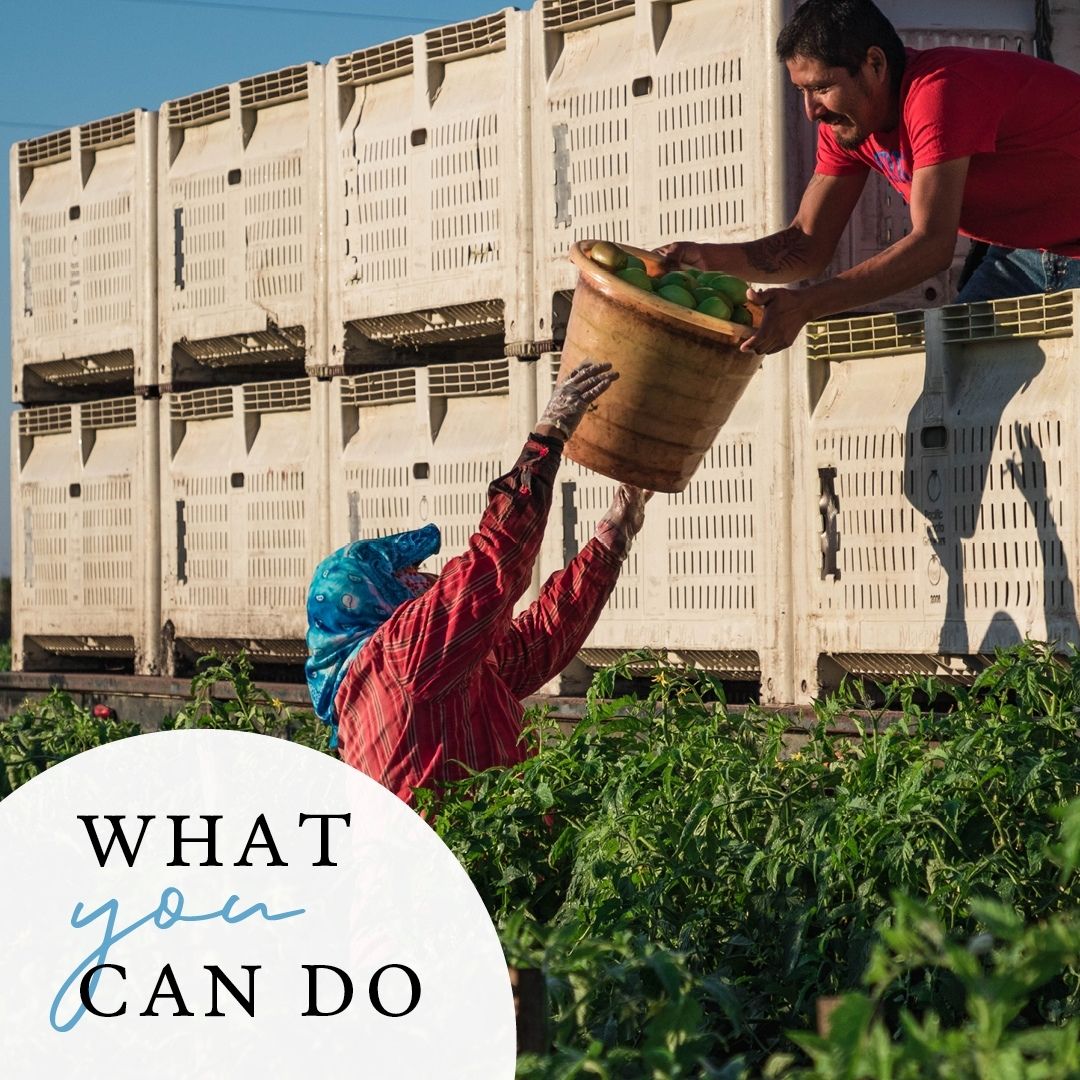
What can you do?
Looking for more information on what you can do to support sustainability efforts?
